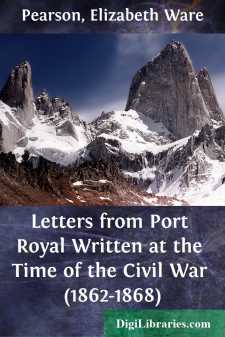History
- Africa 30
- Americas (North Central South West Indies) 50
- Ancient 68
- Asia 58
- Australia & New Zealand 8
- Canada 41
- Caribbean & West Indies 1
- Civilization 20
- Eastern Europe 12
- Europe 310
- Expeditions & Discoveries 60
- General 77
- Historical Geography 1
- Jewish 9
- Latin America 3
- Medieval 8
- Middle East 13
- Military 248
- Revolutionary 8
- Study & Teaching 5
- United States
- Western Europe 56
- World 13
United States Books
Sort by:
James Monroe James Monroe was born April 28, 1758, in Westmoreland County, Va. He was the son of Spence Monroe and Elizabeth Jones, both natives of Virginia. When in his eighteenth year he enlisted as a private soldier in the Army to fight for independence; was in several battles, and was wounded in the engagement at Trenton; was promoted to the rank of captain of infantry. During 1777 and 1778 he...
more...
by:
John R. Kinnear
CHAPTER I. ORGANIZATION, AND MARCH TO NASHVILLE—ABOUT NASHVILLE. The Eighty-sixth Regiment of Illinois Volunteer Infantry was organized at Peoria in the latter part of August, 1862. David D. Irons was made Colonel; David W. Magee, Lieutenant-Colonel; J. S. Bean, Major, and J. E. Prescott, Adjutant. On the 26th of August the captains of the several companies drew lots for the letters of their...
more...
NONOWIT'S HOME Long before New Hampshire found its name, the deep river at its southeast was known as the Piscataqua by the Indians who could stem its strong currents, even in bark canoes. Perhaps it was because of the fresh spring close to its salty shores, some three miles from the sea, that the red men made their encampment on the spot that was later equally attractive to men of white skins....
more...
by:
Thomas Paine
INTRODUCTION A London translation of an original work in French, by the Abbe Raynal, which treats of the Revolution of North America, having been reprinted in Philadelphia and other parts of the continent, and as the distance at which the Abbe is placed from the American theatre of war and politics, has occasioned him to mistake several facts, or misconceive the causes or principles by which they were...
more...
I. THE BATTLE OF PEA RIDGE, OR ELKHORN, AND ITS MORE IMMEDIATE EFFECTS The Indian alliance, so assiduously sought by the Southern Confederacy and so laboriously built up, soon revealed itself to be most unstable. Direct and unmistakable signs of its instability appeared in connection with the first real military test to which it was subjected, the Battle of Pea Ridge or Elkhorn, as it is better known...
more...
CHAPTER I THE CIVIL WAR The military successes of the United States in its Civil War maintained the Union, but entailed readjustments in politics, finance, and business that shifted the direction of public affairs for many years. In the eyes of contemporaries these changes were obscured by the vivid scenes of the battlefield, whose intense impressions were not forgotten for a generation. It seemed as...
more...
CHAPTER I. PHYSICAL DESCRIPTION OF NORTH CAROLINA. The State of North Carolina is included between the parallels 34° and 362° north latitude, and between the meridians 752° and 842° west longitude. Its western boundary is the crest of the Smoky Mountains, which, with the Blue Ridge, forms a part of the great Appalachian system, extending almost from the mouth of the St. Lawrence to the Gulf of...
more...
CHAPTER I. The Man Who Caught The Vision Inland America, at the birth of the Republic, was as great a mystery to the average dweller on the Atlantic seaboard as the elephant was to the blind men of Hindustan. The reports of those who had penetrated this wilderness—of those who had seen the barren ranges of the Alleghanies, the fertile uplands of the Unakas, the luxuriant blue-grass regions, the rich...
more...
INTRODUCTION With Commodore Dupont's capture, on November 7, 1861, of two earth forts which the rebels had recently thrown up at Hilton Head and Bay Point, South Carolina, the Sea Island region became Union territory. The planters and their families having fled precipitately, the United States Government found itself in possession of almost everything that had been theirs, the two chief items...
more...
For about a quarter of a century Niagara was the principal town and commercial capital of Western Canada, and for a brief period was actually the seat of government for the Upper Province. The removal of the provincial officers to York in 1796 struck the first blow at its supremacy, but its material prosperity continued until the beginning of the war with the United States when its exposed situation...
more...











